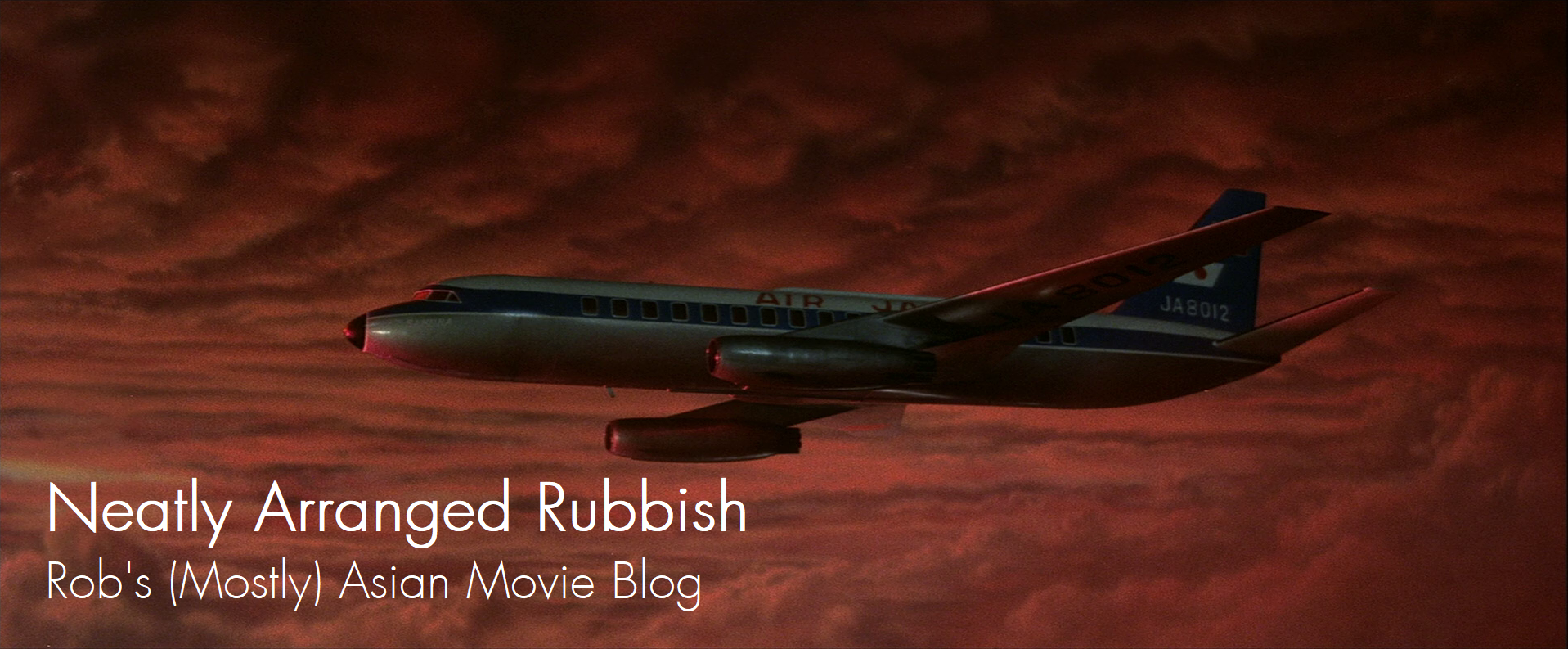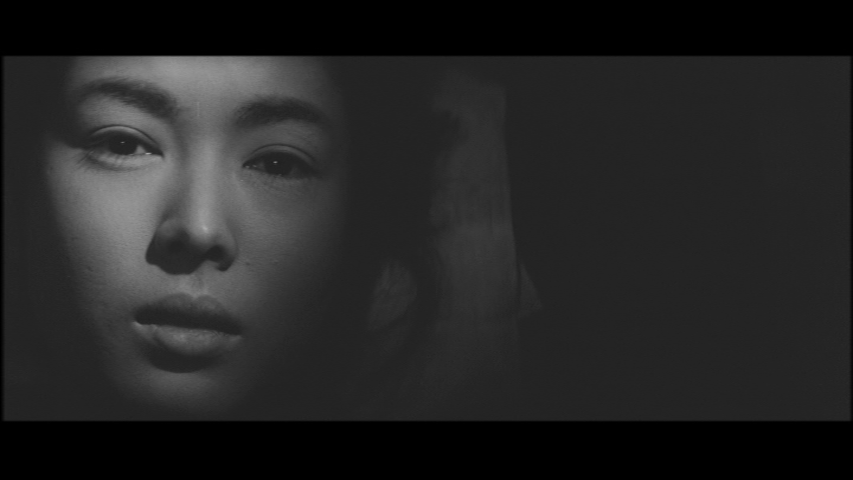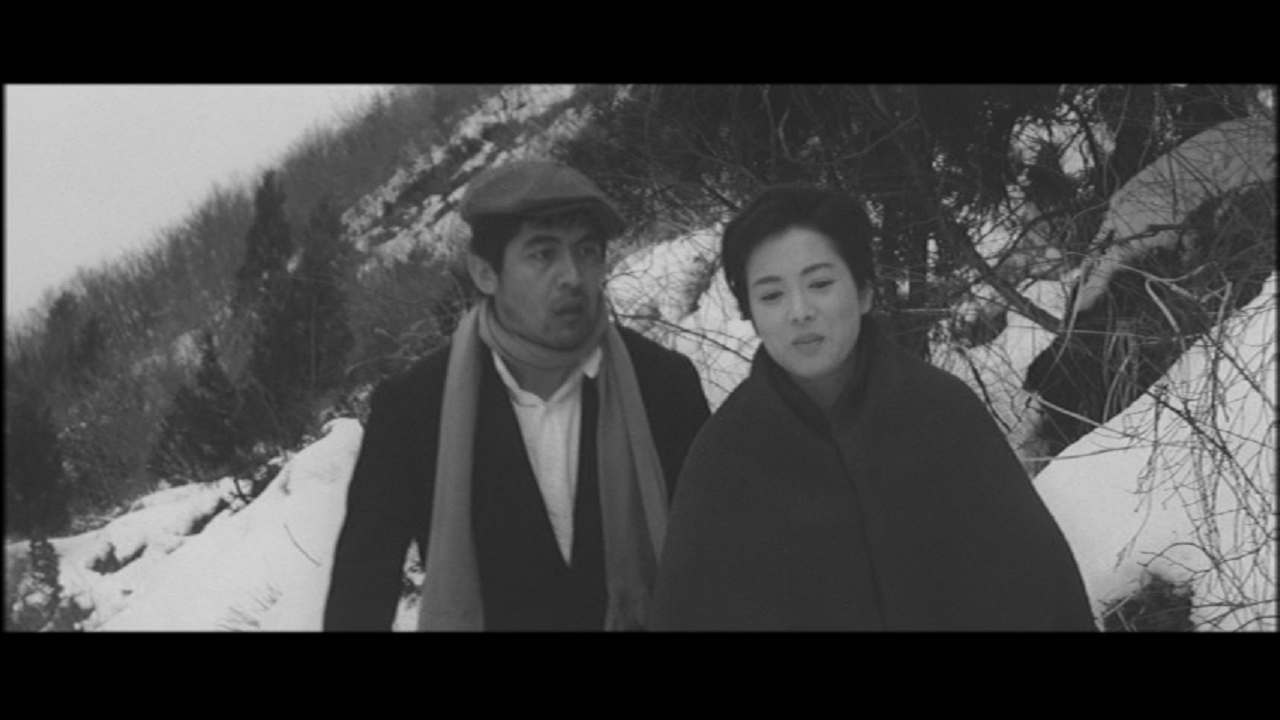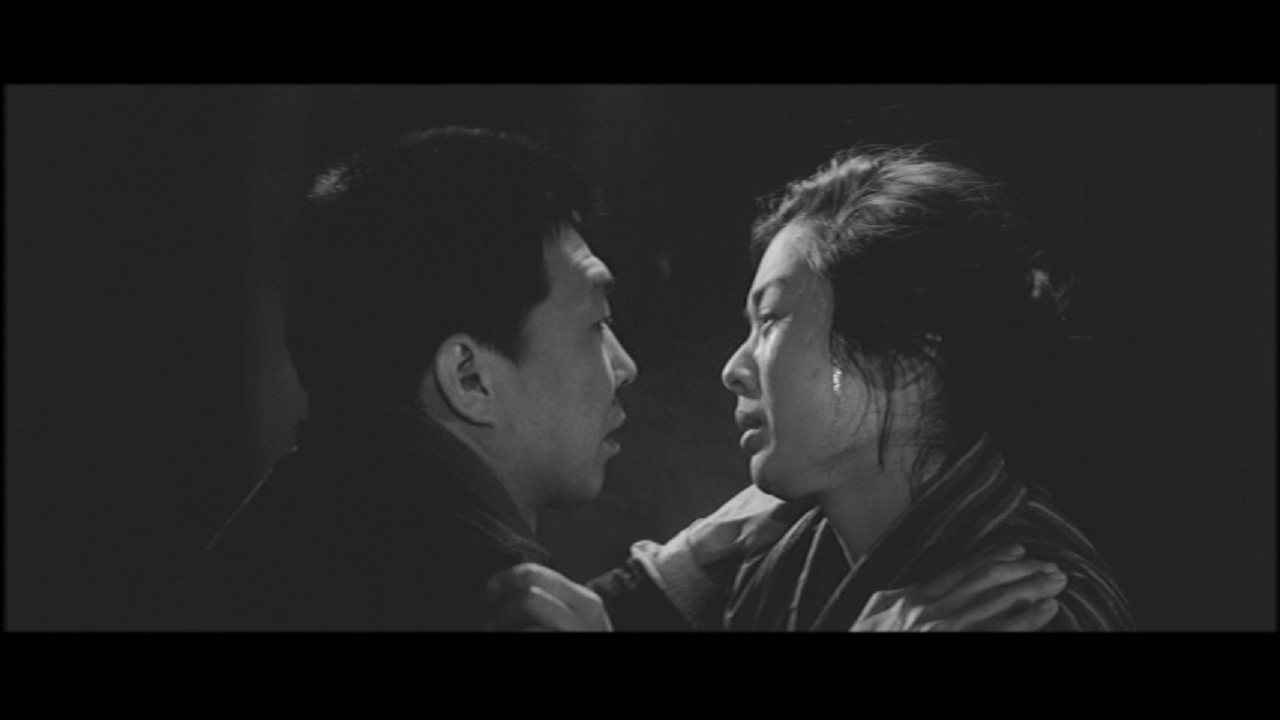Last Updated on October 17, 2020 by rob
In 1937 the success of sake brewery employee Ryukichi (Shoichi Ozawa) leads to jealousy and resentment from workmate and fellow Echigo villager Gonsuke (Rentaro Mikuni). When Gonsuke encounters Ryukichi’s wife Oshin (Yoshiko Sakuma) on the path home he rapes her and then torments the good-natured Ryukichi with rumours of Oshin having an affair. As these rumours gnaw at Ryukichi a horrified Oshin discovers she’s pregnant with Gonsuke’s child. But when Ryukichi finally returns home his suspicions give way to joy at his wife’s pregnancy and the natural assumption he’s the father. However a local midwife inadvertently reveals the truth and Ryukichi’s confrontation with Oshin has horrific consequences.
A riveting tale of betrayal and revenge this, with a tone that moves by increments from threat, to dread, to horror and then a fatalism which engulfs everyone. Early scenes paint Ryukichi as hard working and guileless. He’s an easy character to like but a promotion at work, his pretty wife and his trusting nature quickly have us fearing the worst because Gonsuke – a pressure cooker of resentments just waiting to explode – is such a bullying, manipulative creep. A stopover at a tavern on his way home in which Gonsuke’s desires are inflamed by booze and tales of lust from the resident barflies has us dreading the moment he encounters Ryukichi’s wife Oshin on the path to their village. And as good as Mikuni and Ozawa are here Yoshiko Sakuma is an absolute heartbreaker as Oshin. Her torment – made pregnant by the man who raped her, ashamed and suffering in silence as she conceals the pregnancy from her fellow villagers – could have been the stuff of a standard tear-jerker.
But after the rape the film takes a deep dive into Oshin’s past and in concise flashbacks both lyrical and foreboding Oshin’s childhood dreams are contrasted with her utter powerlessness as a servant girl sexually abused by her employers. One watches in a sort of grim horror as Oshin tries to abort Gonsuke’s bastard child before her husband discovers the truth. She sneaks out in the middle of the night to press heavy weights on her swollen belly, kneels waist deep in the icy waters of a river – all to no avail. I was really struck by the effect Imai gets by crosscutting these scenes with those of Ryukichi at work as he’s tormented by dream images of Oshin in the embrace of her phantom lover. If Oshin is powerless then the implication is that Ryukichi is equally vulnerable because he can’t live without this woman. All the characters here seem at the mercy of forces beyond their control.
When Oshin finds herself on a clifftop tempted to commit suicide it’s the same spot from which Ryukichi’s father fell to his death years earlier. This sense of sympathetic characters struggling to escape a fate pre-ordained proves incredibly gripping because Imai never allows us to quite lose all hope. Even a third act shocker – in which Ryukichi snaps and chokes Oshin to death in the mud of a rice field, but then takes her body into the hills, tenderly cleans and dresses it in her favourite kimono and mourns her until the horrors of decomposition set in – is a macabre knockout because it so embodies the intense love between these two characters; a romantic fatalism that Gonsuke’s lies can strain but never break, not even in death. Not that Gonsuke escapes either. In the film’s final scene this loathsome man – having received his call up papers – is spied by Ryukichi being marched off to war.
You have to laugh at the expression on Gonsuke’s face. Cheered on by his fellow villagers he may be but Gonsuke wears the look of a man who knows he’s been given a death sentence. It comes quicker than anticipated though as Ryukichi hurtles out of the crowd to pull Gonsuke over the cliff edge just like his father before him. It’s all over in seconds. Blast of music. Cut to credits. It’s such a stark and unexpected ending it leaves you floored. With this Imai made one of his best films. His humanist sympathies for the peasant characters are so heartfelt, the drama so powerfully drawn, that the story feels universal – one of those eternal tales that could be happening anywhere at any time. Shunichiro Nakao’s stark b/w cinematography so vividly captures Echigo village in winter that you can practically feel the chill coming off the screen.
Most everything here looks like it was shot on rugged locations, with the actors – poor Yoshiko Sakuma in particular – trudging through heavy snow, kneeling waist deep in a freezing cold river and then having to be drowned in a muddy field (a sequence that feels every bit as agonising to watch as it likely was for her to do). Imai’s interest in the lives of his poor characters also means the film is peppered with fascinating local colour ranging from the backbreaking work involved in Ryukichi’s job of making sake to the rituals required for the village funeral of Gonsuke’s mother. It’s all never less than wholly absorbing and Sei Ikeno’s ominous and mournful music underscores the grim events of this powerhouse movie perfectly.



